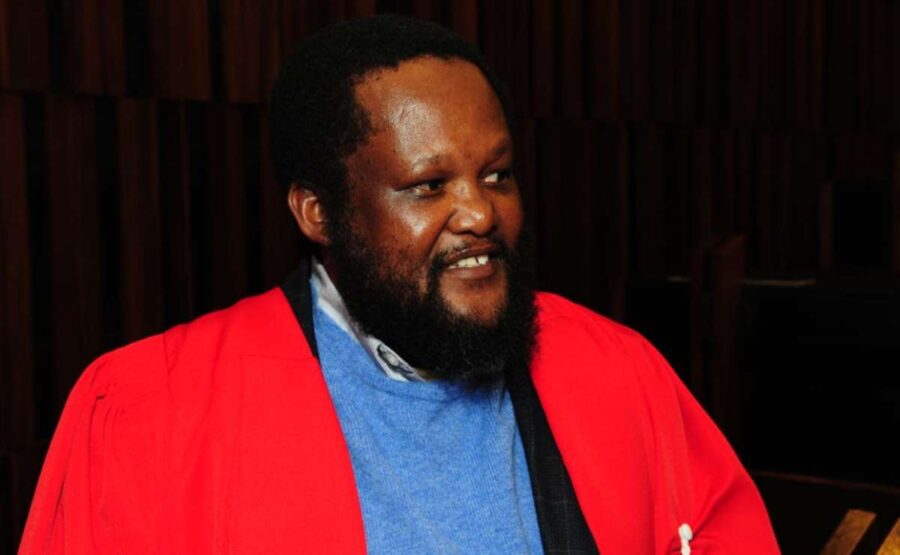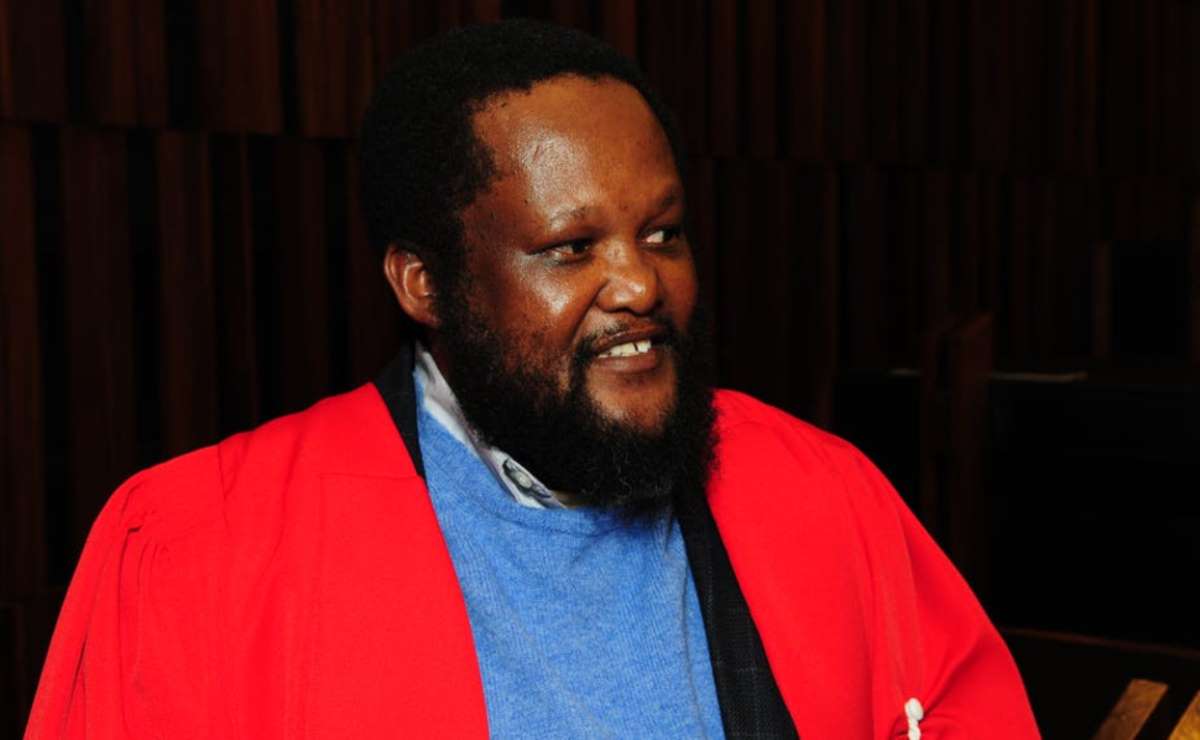
An Intellectual Love Letter to Bhekizizwe Peterson, a South African Literary Giant
Bhekizizwe Peterson was one of South Africa’s foremost humanities scholars. Internationally renowned as an award-winning film writer and producer, he was a leading practitioner of community theatre, a literary and cultural critic and a public intellectual. His work straddled the academy and the community, foregrounding the knowledge of ordinary people. In a round table discussion […]

Bhekizizwe Peterson was one of South Africa’s foremost humanities scholars. Internationally renowned as an award-winning film writer and producer, he was a leading practitioner of community theatre, a literary and cultural critic and a public intellectual. His work straddled the academy and the community, foregrounding the knowledge of ordinary people.
In a round table discussion on his award-winning and acclaimed film Zulu Love Letter, Peterson observed:
It was created as a love letter to those who passed on and those still tasked with creating a better future for all.
For him, black cultural production always stands athwart past and future. Its makers are located in the midst of things, thrust into violent and unequal plots not of their own making. He believed that the black humanities offered unique resources for negotiating these contradictions. Literature, performance, theatre, film, music and art could, as he said:
facilitate dialogic and critical deliberations on individual and collective experiences and dreams.
The astonishing corpus that he created across his career – comprising film, television and theatre-making, creative writings, scholarly and critical works – were guided by these lode stars. The range of genres and media that he mastered speak to an important point: for him, what one created was as important as how and where one worked. Theoretical reflection went hand-in-hand with practice; knowledge had to be made in and outside the academy. Means and ends were inseparable; means became ends through the ethical practice they enacted.
Theory and praxis
I first met him in 1985 when he signed up for an Honours degree at the University of the Witwatersrand in the recently established Department of African Literature, headed up by Es’kia Mphahlele. He had completed a drama degree at the University of Cape Town and was working with Benjy Francis at the Afrika Cultural Centre, creating community theatre.
Like everything he did, this work wove together different domains, uncontained by any one realm. In his graduate work, he brought a Black Consciousness lens to white-dominated Marxist revisionism which used class to trump race, and in turn imported his ideas into his theatre-making.
After completing a Masters in the UK, he joined the Department of African Literature at the University of the Witwatersrand in 1988. He soon established himself as a prominent voice in African theatre studies, his scholarship made distinctive by the mix of theory and praxis that he brought to it.
Always deeply interested in those who had come before, he explored the histories of black theatre practice in South Africa, the topic of his PhD and his monograph, Monarchs, Missionaries and African Intellectuals: African Theatre and the Unmaking of Colonial Marginality.
Set between Mariannhill mission in Kwa Zulu-Natal, and Johannesburg, the book explores how a range of figures used theatre practice and debates about drama to negotiate and contest white hegemonies. The volume is due to be republished in August 2021.
The monograph drew on extensive archival labour, and demonstrates Bheki’s talents as an adept archival scholar.
The idea of the archive became an important focus in his thinking, and was informed both by his hands-on experience and his desire to create a substantial archive for teaching and researching the black humanities.
The builder
Part of this scholarship is what we might call infrastructural intellectual labour, the painstaking and unglamorous work of making important texts available, producing scholarly editions, writing encyclopedia entries and handbook chapters, editing special issues of journals.
It also involved a dedication to projects that would move black literary traditions from what he called “the anteroom of history”. In all of them he cultivated a meticulous scholarly craft, keeping his head down and doing the work.
A systematic builder, he eschewed the limelight and would have no truck with careerism, academic vanity or posturing. For similar reasons, he was repelled by social media with its speed and superficiality, its dialogue of the deaf.
He, by contrast, was an exceptional listener. For anyone who ever had a serious conversation with him, one will always remember the deep sense of being heard, seen and understood.
His scholarship was likewise a mode of deep listening, a dedicated and respectful attentiveness to what writers and cultural producers were attempting to say.
His intellectual orientations were always broad and generous, looking out to the continent, the diaspora and the world. The bookcases in his office sported two shelves of the African Writers Series, with their unmistakable orange and white spines. Over the course of the 1980s, he had garnered this collection, despite the fact that several titles were banned. He had read them all, one sign of his deep engagement with African literary traditions across the continent.
His knowledge of Caribbean and African American literary and cultural forms was legendary.
He possessed a particular gift for analysing popular cultural forms whether kwaito, popular television, or “swagger in Soweto youth culture”. This emphasis formed part of his unwavering commitment to placing the quotidian and the everyday at the centre of the black humanities. As he explained, he was concerned with:
the lives of ordinary people … in ways that celebrated their knowledge, agency, resilience, hopes, and fears.
In his theatre, film-making and scholarship, he foregrounded their “everyday senses and ways of being that are often ignored, downgraded, or erased by the lenses favoured by parochial and patriarchal nationalists, capitalists, and whiteness in society and culture”. These themes undergirded the Mellon project on Narrative Enquiry for Social Transformation which he co-directed.
The teacher
Central to his vision of the black humanities was his teaching, mentorship and supervision. A demanding supervisor, he sought to teach graduate students the craft of serious research. At the same time, he was generous with his time, spending hours listening to students, understanding them and their interests.
As a scholar and creative practitioner, he enjoyed a huge international reputation that sought him out, rather than the other way around. There were many awards, prizes and keynote addresses.
He was deeply beloved by those who worked closely with him. We loved his profound wisdom, his brilliance, his amazing wit, his generosity, his integrity, his commitment to equality. We even loved his famously untidy office, his stubbornness, and his determinedly casual dress code – not least his hallmark leather jacket from the 1980s.
It was one of the good fortunes of my life to have worked with him for more than three decades.
Bheki has left us to join the ancestral realm. We now owe him the attentiveness and care that he showed to his literary forebears. We need to think of the intellectual love letters we can write about his work and how we can take his vision for the black humanities forward.![]()
Isabel Hofmeyr, Professor of African Literature, University of the Witwatersrand
This article is republished from The Conversation under a Creative Commons license. Read the original article.
